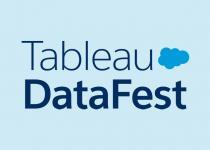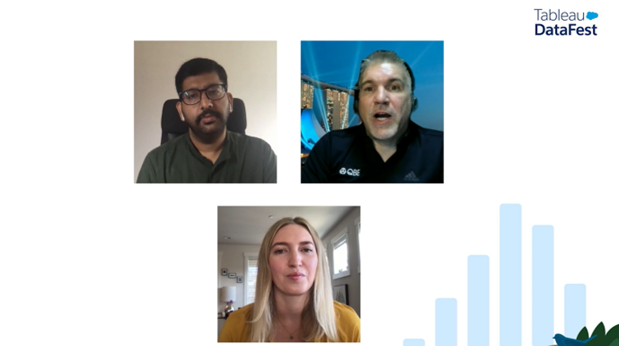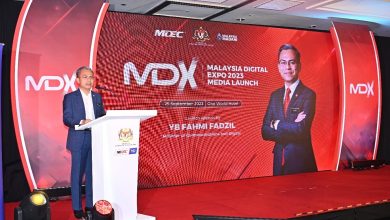
Tableau, a visual analytics platform part of Salesforce, recently hosted its DataFest Asia Pacific event. During this conference, Tableau discussed the future of data analytics, how to democratise data analytics, and showcased insights from their customers about how Tableau has changed the way people use data to solve problems and has given individuals and organisations the ability to make the most of their data.
JY Pook, Senior Vice President and General Manager, Asia Pacific and Japan, Tableau at Salesforce, delivered the event’s opening welcome by stressing the importance of data, and sharing how Tableau’s customers have been able to solve business problems through the use of the visual analytics platform. He also explained the importance of data in navigating future world challenges and driving impactful business outcomes.
“Data has never been more relevant because it’s helping us solve these critical challenges. Workforce data helps understand attrition and retention so we can navigate The Great Resignation. Financial data is needed to understand profitability and cost-cutting as we face an imminent recession. Emissions data is needed to help companies understand their environmental impact so we can all get to net zero now. And data has been critical to helping businesses respond effectively to the pandemic. Ultimately, it is helping us to achieve better business outcomes with insights for faster and smarter decisions,” mentioned Pook during his keynote speech.
Expedite Your Understanding of Data
Wendy Turner-Williams, Chief Data Officer, Tableau at Salesforce, spoke about the future of data and analytics. She highlighted the role that AI will play, noting that AI will add USD$15 trillion to the world economy by 2030, based on the statistics by PWC.
She was joined by Thi Ho, an author and Tableau Ambassador, who highlighted the importance of a community in scaling analytics proficiency (data literacy) in an organisation, drawing on her own experience with the #datafam to illustrate this. Thi also shared how a culture of data democratization where everyone is empowered with data literacy and the data skills, they need will lead to business questions being answered in much a shorter time, hence increasing speed to understand the what and the why for business, and consequently increasing speed to make better decisions to achieve better business results.
 left to right: Wendy Turner-Williams, Chief Data Officer, Tableau at Salesforce and Thi Ho, Tableau Public Featured Author & Tableau Ambassador
left to right: Wendy Turner-Williams, Chief Data Officer, Tableau at Salesforce and Thi Ho, Tableau Public Featured Author & Tableau Ambassador
Democratizing Data
On the topic of Democratizing Data, Tableau lined the triple threat consisting of Tableau at Salesforce’s Senior Technical Evangelist, Ashley Howard Neville as the head of the panel, and two of Tableau’s customers QBE Insurance’s Vice President of Data Science, Sean Burns and Taveloka’s Lead – Corporate Analytics and BI, Umesh Ramakrishnan, in their Customer Panel entitled “Democratizing Analytics – Levers to Drive Results”. Umesh and Sean discussed what data democratization encapsulates in their respective organizations.
 top left: Umesh Ramakrishna, Taveloka’s Lead – Corporate Analytics and BI
top left: Umesh Ramakrishna, Taveloka’s Lead – Corporate Analytics and BI
top right: Sean Burns, QBE Insurance’s Vice President of Data Science
bottom centre: Ashley Howard Neville, Tableau at Salesforce’s Senior Technical Evangelist
Umesh defined “data democratization” as giving the right people access to the right data at the right time. He shared that being data-driven is part of Traveloka’s DNA. He mentioned that given the high volume of data requirements, having centralized data functions would not be able to keep up with the demand. Hence, Traveloka has adopted a self-service approach, so their employees can easily access the data that they require to perform their roles.
Sean, too, discussed QBE Insurance’s approach. He mentioned a three-step process; first, embed talent in the business to do business science and intelligence roles. Second, enable them to do data and analytics with training. Third, empower them with the right tools that allow them to gain the insights to positively impact the business.
Both organizations highlighted the direct link between having a data-literate workforce and achieving business outcomes.





